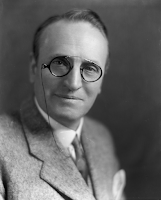In 1858, after increasingly representing slaves fleeing over the border from Kentucky, still a slave state then, Hayes found his political reputation growing. He was appointed city solicitor for Cincinnati, a post he held until 1861, when he left politics to fight in the Civil War for the Union Army. He was wounded several times, earning a reputation for bravery, and was promoted to major general. After the war, he served in the US Congress from 1865 to 1867 as a Republican, and then was elected Governor of Ohio for two consecutive terms, from 1868 to 1872. Thereafter, he returned to law for a few years before being returned again as state governor in 1876.
However, Hayes’s third term as governor was short lived since that same year he ran for president. Although he lost the popular vote to Democrat Samuel Tilden, he won the presidency after a Congressional commission awarded him 20 disputed electoral votes. The so-called Compromise of 1877 resulted in the Democrats acquiescing to Hayes’s election and Hayes accepting the end of military occupation of the South. This was one of the most contentious elections in US history.
Hayes’s presidency was characterised by meritocratic government, equal treatment without regard to race, and improvement through education. He is remembered for ordering federal troops out of Southern capitals as reconstruction came to an end, and for using troops to quell the Great Railroad Strike of 1877. He also began a process of civil service reform. He remained president until 4 March 1881, and, as he had pledged, did not seek re-election. During a period of active retirement, he continued to work towards extending children’s education and prison reform. He died in 1893. Further biographical information is available online from, among other sites, the Hayes Presidential Center, the Miller Center and Wikipedia.
Hayes kept a diary throughout his life from the age of 12 (and, apparently, was one of only three presidents to do so while in office - as far as is known). The diaries were edited by Charles Richard Williams and published in five volumes by Ohio State Archæological and Historical Society in 1922 as The Diary and Letters of Rutherford B. Hayes, Nineteenth President of the United States. These volumes are all out of copyright and available at Internet Archive. Also, the Rutherford B. Hayes Presidential Center has made available the 3,000 pages of text in a form that can be searched by keyword or browsed page by page.
The following extracts are taken from the Center’s website, and most of them are highlighted as ‘memorable quotes’; however, the last extract - dating to the first days of his Presidency - is taken from Volume III.
19 June 1841
‘I will put down a few of my present hopes and designs for the sake of keeping them safe. I do not intend to leave here until about a year after I graduate, when I expect to commence the study of law. Before then I wish to become a master of logic and rhetoric and to obtain a good knowledge of history. To accomplish these objects I am willing to study hard, in which case I believe I can make, at least, a tolerable debater. It is another intention of mine, that after I have commenced in life, whatever may be my ability or station, to preserve a reputation for honesty and benevolence; and if ever I am a public man I will never do anything inconsistent with the character of a true friend and good citizen. To become such a man I shall necessarily have to live in accordance with the precepts of the Bible, which I firmly believe, although I have never made them strictly the “rule of my conduct.” Thus ends this long dry chapter on self.’
27 February 1853
‘Almost two months married. The great step of life which makes or mars the whole after journey, has been happily taken. The dear friend who is to share with me the joys and ills of our earthly being grows steadily nearer and dearer to me. A better wife I never hoped to have. Our little differences in points of taste or preference are readily adjusted, and judging by the past I do not see how our tender and affectionate relations can be disturbed by any jar. She bears with my “innocent peculiarities” so kindly, so lovingly; is so studious in providing for my little wants; is - is, in short, so true a wife that I cannot think it possible that any shadow of disappointment will ever cloud the prospect,save only such calamities as are the common allotment of Providence to all. Let me strive to be as true to her as she is to me.’
6 November 1853
‘On Friday, the 4th, at 2 P. M., Lucy gave birth to our first child - a son. I hoped, and had a presentiment almost, that the little one would be a boy. How I love Lucy, the mother of my boy! Sweetheart and wife, she had been before, loved tenderly and strongly as such, but the new feeling is more “home-felt,” quiet, substantial, and satisfying. For the “lad” my feeling has yet to grow a great deal. I prize him and rejoiced to have him, and when I take him in my arms begin to feel a father’s love and interest, hope and pride, enough to know what the feeling will be if not what it is. I think what is to be his future, his life. How strange a mystery all this is! This to me is the beginning of a new life. A happy one, I believe.’
15 May 1861
‘Judge Matthews and I have agreed to go into the service for the war, if possible into the same regiment. I spoke my feelings to him, which he said were his also, viz., that this was a just and necessary war and that it demanded the whole power of the country; that I would prefer to go into it if I knew I was to die or be killed in the course of it, than to live through and after it without taking any part in it.’
14 March 1877
‘We left Columbus soon afternoon, Thursday, March 1, for Washington on a special car; having, in fact, two cars of Colonel Tom Scott, attached to the regular passenger train. In our party were William Henry Smith, ex-Governor Noyes, General Young, General Grosvenor, [and] Colonel H. C. Corbin.
The evening before, we had a reception at the State House given by the people of Columbus. A large crowd followed us to the depot. We were escorted by the college cadets. I made a short speech which was well received. Crowds met us at Newark, Dennison, Steubenville, and other points. The enthusiasm was greater than I have seen in Ohio before. At Marysville(?), near Harrisburg, we were wakened to hear the news that the two houses had counted the last State and that I was declared elected!
We reached Washington about 9:30 A. M. General and Senator Sherman met us at the depot, and we were driven directly to Senator Sherman’s house. After breakfast I called with Senator Sherman on President Grant.
It was arranged that I should in the evening, before the state dinner at the White House, be sworn by the Chief Justice to prevent an interregnum between Sunday noon (the 4th) and the inauguration, Monday. This was the advice of Secretary Fish and the President. I did not altogether approve but acquiesced.
I then drove with Senator Sherman to the Capitol. The colored hack-drivers and others cheered lustily. I went into the Vice-President’s room and many Senators and Representatives were introduced to me. Several Northern men, S. S. Cox and other Democrats, and still more Southern men.
Saturday and Sunday [I] saw Senators and Representatives and others, and [received] many suggestions on the Cabinet. Blaine urged Fry. Hamlin much vexed and grieved when I told him I couldn’t appoint Fry. Blaine seemed to claim it, as a condition of good relations with me. Cameron and Logan [were] greatly urged all day. I told Cameron I could not appoint him. Too many of the old Cabinet had good claims to remain, to recognize one without appointing more than would be advisable. I accordingly nominated: Wm. M. Evarts, New York, State; John Sherman, Ohio, Treasury; Carl Schurz, Missouri, Interior; General Charles Devens, Massachusetts, Attorney-General; D. M. Key, Tennessee, Postmaster-General; George W. McCrary, Iowa, War; R. W. Thompson, Indiana, Navy.
The chief disappointment among the influential men of the party was with Conkling, Blaine, Cameron, Logan, and their followers. They were very bitter. The opposition was chiefly to Evarts, Key, and especially Schurz. Speeches were made, and an attempt to combine with the Democrats to defeat the confirmation of the nominations only failed to be formidable by [reason of] the resolute support of the Southern Senators like Gordon, Lamar, and Hill. After a few days the public opinion of the country was shown by the press to be strongly with me. All of the nominations were confirmed by almost a unanimous vote.
The expressions of satisfaction from all parts of the country are most gratifying. The press and the private correspondence of Rogers [private secretary] and myself are full of it.
My policy is trust, peace, and to put aside the bayonet. I do not think the wise policy is to decide contested elections in the States by the use of the national army.’
This article is a slightly revised version of one first published on 4 October 2012.








